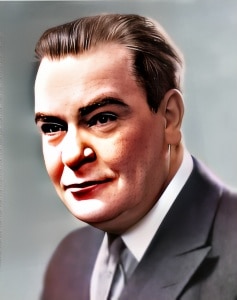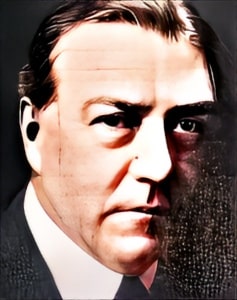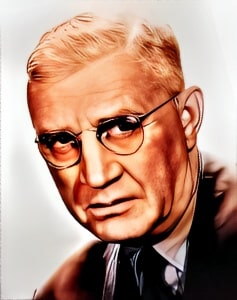 George Siegmann (1882-1928) was an American actor who made notable contributions to the early years of cinema, particularly during the silent film era.
George Siegmann (1882-1928) was an American actor who made notable contributions to the early years of cinema, particularly during the silent film era.
Known for his versatility as a character actor, he portrayed a wide range of roles, from villains to authority figures. Siegmann’s presence on screen, marked by his commanding presence and expressive acting, left a lasting legacy in the world of early American cinema.
Born on February 8, 1882, in New York City, George Charles Siegmann began his acting career in the theater before transitioning to silent films. He made his film debut in the early 1910s when the film industry was still in its formative stages.
One of the highlights of Siegmann’s career was his collaboration with pioneering director D.W. Griffith. He appeared in several of Griffith’s films, including “ Intolerance” (1916), an epic and innovative project that explored themes of prejudice and injustice throughout different historical eras. Siegmann’s performances in “ Intolerance” were central to the film’s impact, as he showcased his ability to adapt to a variety of roles.
In “ The Birth of a Nation” (1915), another Griffith film, Siegmann portrayed a crucial character, Silas Lynch. While the film was groundbreaking in terms of cinematic techniques, it has faced criticism for its racist content. Siegmann’s ability to convey the complexity of his character added depth to the narrative.
Siegmann’s range as an actor was evident in his ability to embody different character types. He often played roles as villains or antagonists, utilizing his commanding presence and expressive acting style to create memorable characters. In films like “Way Down East” (1920), directed by Griffith, he portrayed the sinister character Lennox Sanderson, adding tension and drama to the story.
As the silent film era transitioned into the sound era, Siegmann faced the challenges of adapting to the evolving industry. While his presence in Hollywood waned over the years, his early contributions to the medium and his commanding on-screen presence remain a part of the history of American cinema.
George Siegmann’s personal life remains relatively private, with limited information available about his off-screen activities. His acting career is the primary focus of his legacy, and his performances in D.W. Griffith’s films are remembered as significant contributions to the early days of American cinema.
George Siegmann passed away on June 22, 1928, in Los Angeles, California. His contributions to the silent film era continue to be celebrated and appreciated for their emotional depth and their role in shaping the early years of cinema. His performances are considered essential in the history of American film and a testament to the power of storytelling through the medium of film.
Loading live eBay listings...




